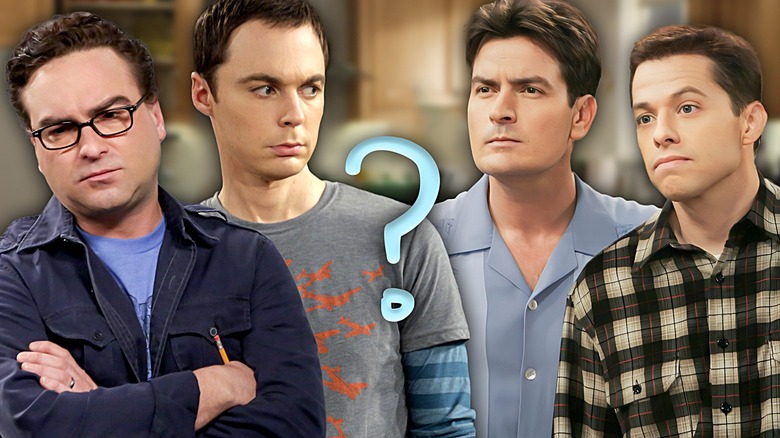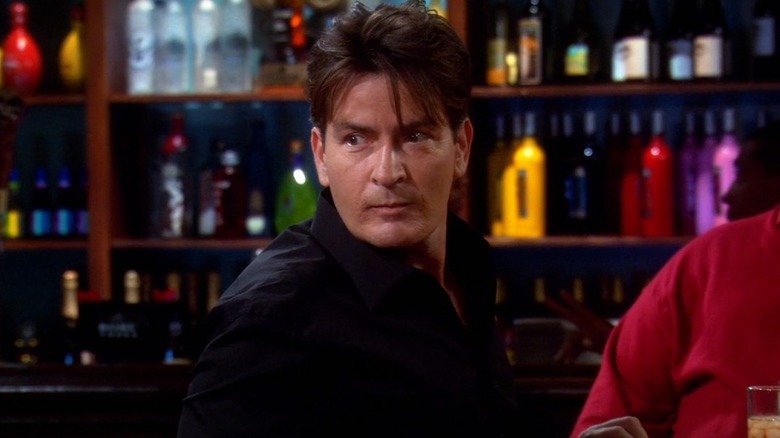Are Two And A Half Men And The Big Bang Theory Connected?
If you're talking to a hardcore "The Big Bang Theory" fan, chances are they've watched at least some of "Two and a Half Men" — and vice-versa. The two sitcoms dominated the realm of television throughout their respective runs, and they share quite a bit of creative DNA with one another, thanks to both being born from the mind of creator Chuck Lorre. The tonal similarities between the two series may lead some fans to believe that they take place in the same continuity. However, a few points ultimately add up to pour cold water on the idea of a shared universe.
Crucially, "Two and a Half Men" star Charlie Sheen actually appears in "The Big Bang Theory" — and not as his character of Charlie Harper, but as himself. Raj Koothrappali (Kunal Nayyar) meets the real-life actor for a brief scene in Season 2, Episode 4, titled "The Griffin Equivalency." With Sheen's existence in the universe of "The Big Bang Theory," it's more likely that "Two and a Half Men" is simply a TV show within said continuity. Interestingly enough, the opposite is true for "Two and a Half Men," which references "The Big Bang Theory" as an in-universe TV series on several occasions.
Two and a Half Men and The Big Bang Theory are connected in a meta sense
While "Two and a Half Men" and "The Big Bang Theory" may not take place in the same continuity, they still share some behind-the-scenes connections. As mentioned previously, both series were created by Chuck Lorre, but he's not the only person who bridges the two productions. In fact, many actors have appeared on both shows, including April Bowlby, Vernee Watson-Johnson, and Brooke D'Orsay.
It can also be argued that the very existence of both of these CBS sitcoms is intertwined. Lorre himself has suggested that "The Big Bang Theory" would never have been made if not for his creation of "Two and a Half Men." "None of this happens without 'Two and a Half Men,'" Lorre said of "The Big Bang Theory" in a 2015 interview with the Lansing State Journal. "[Without it, we] couldn't have gone into CBS and said ... with a straight face that we want to do a show about physicists."
Of course, "The Big Bang Theory" has become a massive franchise in its own right, spawning the successful spin-off "Young Sheldon," which, in turn, has led to the creation of its own spin-off. Suffice it to say, it seems that the source of Lorre's sitcom empire can be traced all the way back to "Two and a Half Men."

